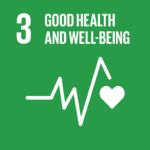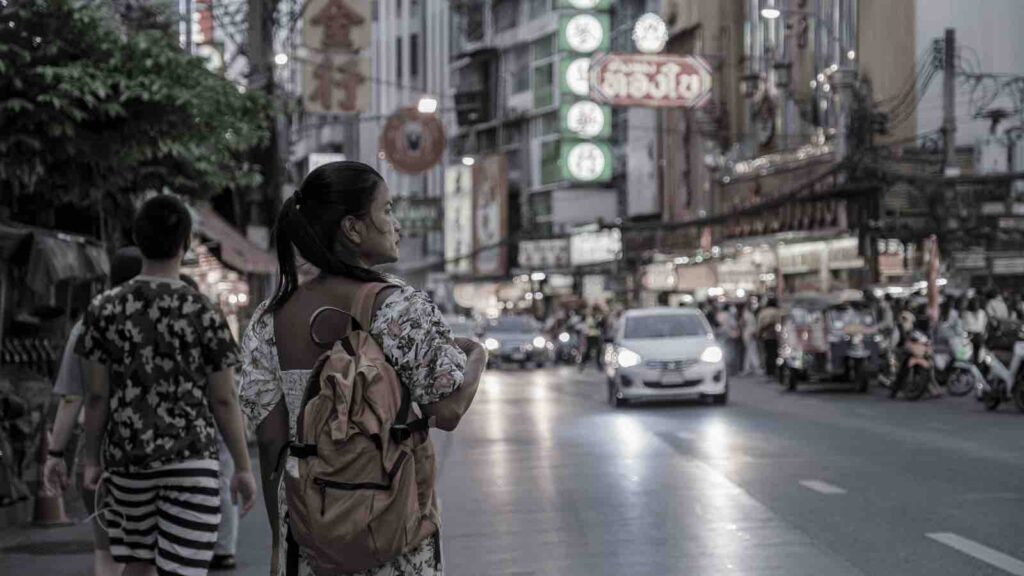Clean air, not ‘hot air’ : Thai Ministry of Industry ordered to implement vital air pollution solution.
Bangkok, Thailand – In a monumental victory for environmental advocates, Greenpeace Thailand and its allies celebrated a significant ruling on August 29th in the #RightToCleanAir case. The Thai Ministry of Industry has been directed to take immediate action and implement the Pollutant Release & Transfer Register (PRTR), a crucial step towards combatting the pressing air pollution crisis.
RELEVANT SUSTAINABLE GOALS




#RightToCleanAir Case
The landmark ruling was met with enthusiastic approval from a coalition of environmental organizations, including the Environmental Law Foundation (EnLaw), Greenpeace Thailand, Ecological Alert and Recovery-Thailand (EARTH), Northern Breath Council, Chiang Mai Breathe Council, along with private individuals. The joint effort culminated in a lawsuit filed against the National Environment Board (NEB) and two key ministries – Natural Resources and Environment, and Industry – for their failure to address the PM2.5 crisis adequately. The implementation of measures to tackle this pollution crisis has fallen short of the commitments outlined in the “Solving the Problem of Particulate Matter” agenda of 2019, resulting in a failure to safeguard public health as enshrined in the law.
The Central Administrative Court’s decision mandates that the Ministry of Industry, under ministerial supervision, must enforce the Pollutant Release and Transfer Register (PRTR) within 60 days. Additionally, the court rejected the proposed release and amendment of the Ministry of Industry’s notification regarding air pollutant concentrations from factories, which aimed to stay within the global standard of 2.5 microns.
Regarding the adjustment of PM2.5 dust standards in alignment with the World Health Organization’s (WHO) guidelines, the court acknowledged the delayed process but noted that the NEB had tightened the dust standards within three months after a civil society complaint was filed on July 8, 2022. Consequently, this aspect of the case was dismissed.
The pivotal indictments of the ‘Right to Clean Air’ case include:
- Amendment of NEB’s Notification on ambient air standards of PM2.5 to align with WHO-IT3, requiring a 24-hour monitoring and ensuring annual PM2.5 levels do not exceed 37 and 15 μg/m3, respectively.
- Imposition and regulation of PM2.5 concentrations emitted by factories to adhere to global standards.
- Creation or amendment of a notification by the Industry Ministry, ensuring air pollutant concentrations released by factories, particularly PM2.5, conform to global standards.
- Execution of the PRTR by the Industry Ministry, encompassing PM2.5 in the target pollutant and chemicals list.
While civil society has triumphed in this case, our mission continues until these environmental challenges are fully resolved. Moving forward, we will closely monitor the government's measures to address PM2.5, a pressing threat to public health and well-being. Urgent action is essential, as safeguarding health remains a top priority
Alliya Moun-ob, Air Pollution Campaigner for Greenpeace Thailand,
This case underscores the increasing momentum of civil society’s pushback against air pollution. Over the past two years, citizens have filed five air pollution lawsuits, reflecting growing concerns over the government’s perceived lack of commitment to addressing the PM2.5 crisis and its consequential impact on the population.
Surachai Trong-ngam, EnLaw’s secretary-general, remarked, “Today’s ruling by the Central Administrative Court establishes a new precedent for environmental cases in Thailand, particularly those related to air pollution, which significantly impacts Thai society. We will vigilantly monitor the government’s progress in implementing measures for PM2.5 and the PRTR. As for the dismissed aspects of the case that pertain to setting standards for industrial dust emission, we will consult with civil society regarding a possible appeal within the 30-day window for reconsideration.”
Penchom Saetang, director of Ecological Alert and Recovery-Thailand, emphasized, “The Pollutant Release and Transfer Register (PRTR) is a regulation adopted by many countries worldwide to address pollution comprehensively. Unlike existing environmental laws that outline general concepts of environmental protection, the PRTR directly supervises industrial factories and other pollution sources, leading to reduced emissions. By providing easy public access to information on pollutant quantities and types from each source via an accessible website aligned with the community’s right to know, this regulation creates an extensive database. Accelerating the PRTR’s implementation in Thailand is crucial for effectively combatting air pollution.”
Alliya Moun-ob, Air Pollution Campaigner for Greenpeace Thailand, shared, “While civil society has triumphed in this case, our mission continues until these environmental challenges are fully resolved. Moving forward, we will closely monitor the government’s measures to address PM2.5, a pressing threat to public health and well-being. Urgent action is essential, as safeguarding health remains a top priority.”
In the aftermath of this victory, civil society will diligently oversee and follow up on the Industry Ministry’s adherence to the court-ordered regulations. A call for public support to expedite the PRTR’s progress via an online platform at thaiprtr.com is also underway, ensuring a transparent pollutant database in Thailand accessible to all. Clean air is an inalienable right, and this victory marks a significant step forward. #RightToCleanAir #ฟ้องทะลุฝุ่น
You may also be interested in :
Billions At Risk : Asia’ Urgent Race For Clean Energy Against Air Pollution


